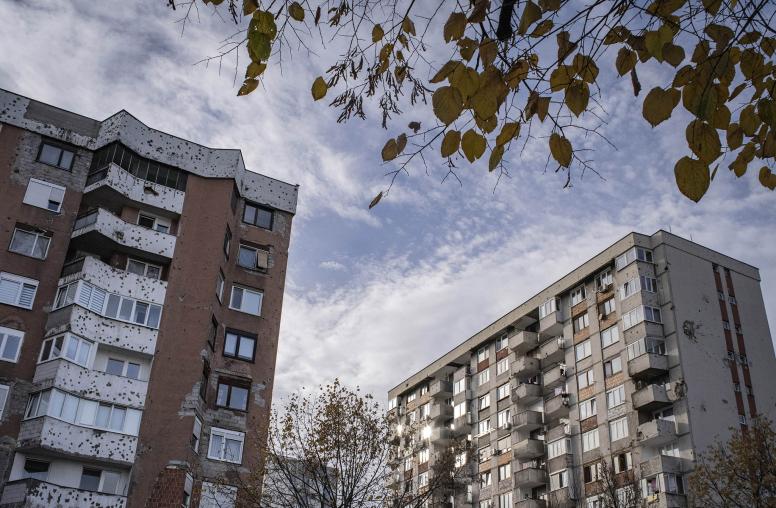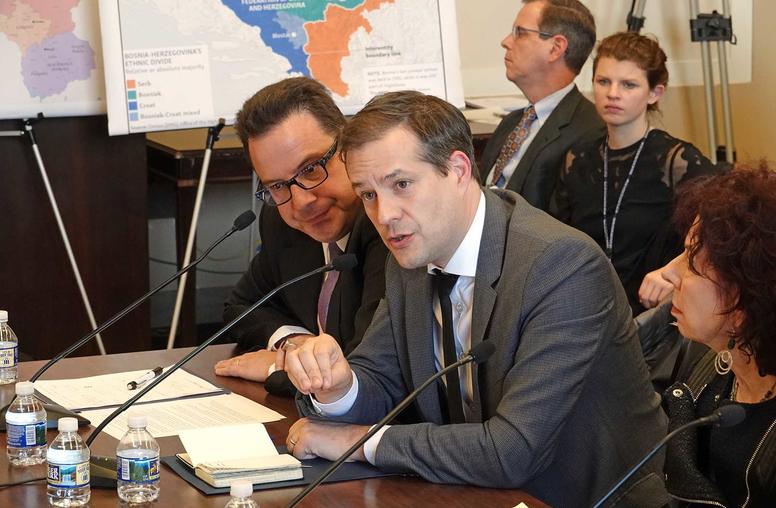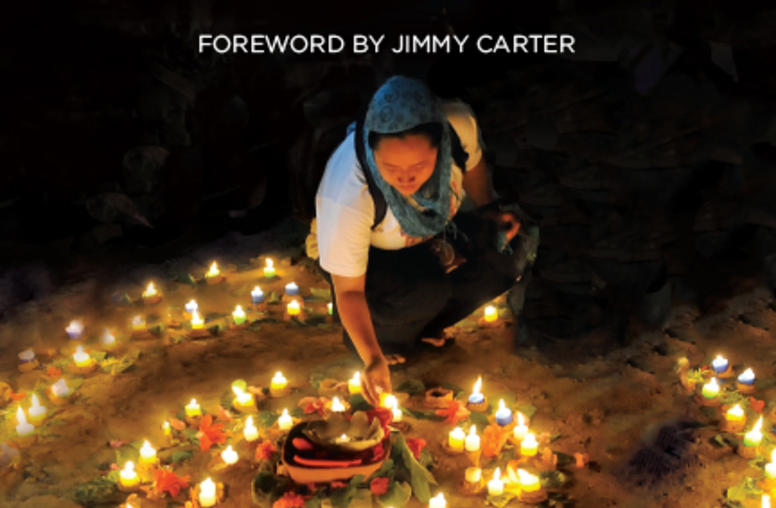Unfinished Business in Bosnia and Herzegovina: What Is To Be Done?
This is the first of three papers USIP will publish this month on Bosnia, each with a different analytical perspective on what is happening in Bosnia and what needs to be done there to prevent a return to violence. We do this in the hope that these papers will generate a fuller debate on options that might be pursued by the U.S. government (USG), Europe and Bosnians.

Introduction
This first paper resulted from a policy roundtable USIP organized on April 3, 2009 for people concerned about resolving Bosnia and Herzegovina’s growing tensions and unmet challenges and the policies necessary to address them. The meeting was addressed by former High Representative Paddy Ashdown, and Daniel Serwer, vice president of USIP’s Center for Post-Conflict Peace and Stability Operations, and Tomáš Szunyog, director of the South East and East European Department of the Czech foreign ministry, moderated two roundtable sessions.
Participants included guests from the State Department, National Security Council and Pentagon, four former U.S. ambassadors to Bosnia, several former principal deputy high representatives, the current principal deputy high representative, several former heads of mission of the Organization for Security and Cooperation in Europe (OSCE) in Bosnia, representatives from nongovernmental organizations and academia, a former presidential envoy, congressional staffers and representatives of the European Union, its institutions, member states and missions in Bosnia.
This group focused on core issues of governance reform, the roles of the European Union and the United States, and the transition from the Office of the High Representative (OHR) to the European Union special representative (EUSR).
Following the Dayton Peace Accords that ended the 1992-95 war, Bosnia and Herzegovina saw a decade of substantial international engagement and investment (1996-2005). During this time the United States (U.S.) and European Union (EU) worked with NATO, the United Nations, the World Bank, OSCE, Russia, Turkey, Japan and numerous other partners to help Bosnia make steady and measurable progress in reconstruction, institution-building, governance (including security sector and judicial reforms), and refugee return.
Nonetheless, since early 2006, worrying signs of stagnation and backsliding have begun to appear. Although Bosnia signed a Stabilization and Association Agreement (SAA) with the EU in 2008, the country had long since stalled in the reform and EU integration process. Not only did the SAA not generate momentum, but Republika Srpska (RS) is busy unraveling some of the hard-won gains of the previous 13 years, including reforms required by the EU as preconditions for signing the SAA.
Today, political dialogue in Bosnia is sadly reminiscent of the immediate pre-war (and post-war) era. Aggressive rhetoric has escalated the ambient level of uncertainty and tension among Bosnia’s citizens to a postwar high. Politicians from RS and the Federation often use language designed to raise tensions and polarize the population. Most notable are RS Premier Milorad Dodik and the Bosniak member of the presidency, Haris Silajdžic', though they are far from alone in generating angst amongst the populace. Beginning with the campaign for the October 2006 elections and continuing up to the present, both men, among others, have engaged in rhetoric that appears to call for violating the Dayton Peace Accords. Most notably, Dodik has repeatedly mooted secession of the RS, while Silajdžic' has called for its abolition in the constitutional reform process.
This USIPeace Briefing was written by Kurt Bassuener and James Lyon, both senior associates for the Democratization Policy Council, with further input from many other conference participants. The views expressed here are not necessarily those of USIP, which does not advocate specific policies.
The United States Institute of Peace is an independent, nonpartisan institution established and funded by Congress. Its goals are to help prevent and resolve violent international conflicts, promote post-conflict stability and development, and increase conflict management capacity, tools, and intellectual capital worldwide. The Institute does this by empowering others with knowledge, skills, and resources, as well as by directly engaging in peacebuilding efforts around the globe.



